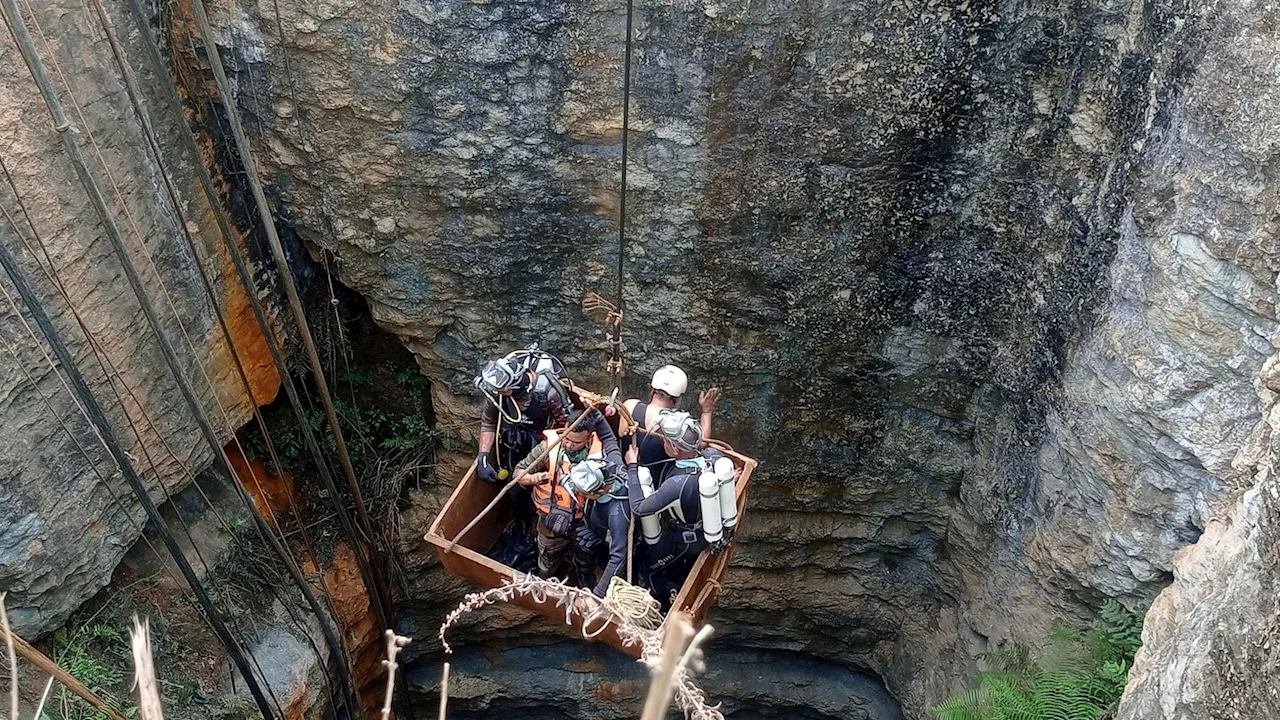Across most of the Northeast, getting bitten by a blacklegged tick- also called a deer tick - is a risk during spring, summer, and fall.
Dartmouth CollegeJan 17 2025 A new Dartmouth study, published in Parasites and Vectors, finds that 50% of adult blacklegged ticks carry the bacteria that causes Lyme disease while 20% to 25% of the younger blacklegged ticks carry the bacteria.
Lyme disease was first discovered in Lyme, Conn, in 1975. Its symptoms can vary depending on the stage and severity of the disease but can include a rash, fever, chills, fatigue, muscle or joint aches, and swollen lymph nodes. If left untreated, prolonged and more severe symptoms may develop. In general, ticks must be attached to a person for at least 24 hours to transmit the Lyme disease bacteria. So even though adult blacklegged ticks are more likely to carry the bacteria than younger ticks, because they are bigger, about the size of a sesame seed, there is particular concern about the younger ticks or nymphs, which are only about the size of a poppy seed, making them difficult to spot.
Related StoriesThe researchers analyzed the abundance of blacklegged ticks and the presence of Lyme disease bacteria and other pathogens so that they could determine how blacklegged ticks and the pathogens they carry are changing in time and space.
Lyme Disease Blood Pathogen Research Tick-Borne Diseases
United Kingdom Latest News, United Kingdom Headlines
Similar News:You can also read news stories similar to this one that we have collected from other news sources.
 Newcastle-under-Lyme visitor baffled by people wearing T-shirts during freezeElla Lowgren's bemused response to locals without coats is viewed more than two million times.
Newcastle-under-Lyme visitor baffled by people wearing T-shirts during freezeElla Lowgren's bemused response to locals without coats is viewed more than two million times.
Read more »
 Hospital Begins 'World-Leading' Study Testing Hundreds of Babies for Rare Genetic ConditionsA hospital in Leeds has launched a groundbreaking study testing hundreds of babies for over 200 rare genetic conditions. The study, a collaboration between Genomics England and NHS England, aims to identify conditions in asymptomatic babies through whole genome sequencing using blood samples from the umbilical cord. Parents will be informed about the study during pregnancy and can choose to participate. The study hopes to enable earlier diagnosis and treatment for babies with treatable genetic conditions.
Hospital Begins 'World-Leading' Study Testing Hundreds of Babies for Rare Genetic ConditionsA hospital in Leeds has launched a groundbreaking study testing hundreds of babies for over 200 rare genetic conditions. The study, a collaboration between Genomics England and NHS England, aims to identify conditions in asymptomatic babies through whole genome sequencing using blood samples from the umbilical cord. Parents will be informed about the study during pregnancy and can choose to participate. The study hopes to enable earlier diagnosis and treatment for babies with treatable genetic conditions.
Read more »
 Dementia Risk in Americans Soars to 42% After Age 55, Study FindsA new study reveals that the risk of developing dementia after age 55 in Americans is 42%, more than double previous estimates. The study, utilizing data from the Atherosclerosis Risk in Communities Neurocognitive Study (ARIC-NCS), projects a significant rise in dementia cases, reaching 1 million new cases annually by 2060. Factors contributing to this increase include an aging population, genetic predispositions, and lifestyle factors like hypertension, diabetes, obesity, unhealthy diets, lack of exercise, and poor mental health. The study also highlights disparities in dementia risk among racial groups, with Black individuals facing a higher risk.
Dementia Risk in Americans Soars to 42% After Age 55, Study FindsA new study reveals that the risk of developing dementia after age 55 in Americans is 42%, more than double previous estimates. The study, utilizing data from the Atherosclerosis Risk in Communities Neurocognitive Study (ARIC-NCS), projects a significant rise in dementia cases, reaching 1 million new cases annually by 2060. Factors contributing to this increase include an aging population, genetic predispositions, and lifestyle factors like hypertension, diabetes, obesity, unhealthy diets, lack of exercise, and poor mental health. The study also highlights disparities in dementia risk among racial groups, with Black individuals facing a higher risk.
Read more »
 Downed Wires Disrupt Amtrak Service in Northeast CorridorAmtrak service is experiencing significant delays and cancellations across the Northeast Corridor due to downed wires impacting tracks in and out of New York's Penn Station. The issue has caused single-tracking conditions, leading to rail congestion and affecting trains between Washington, D.C. and Boston. Crews are actively working to resolve the situation, but there is no estimated time for the resumption of standard service.
Downed Wires Disrupt Amtrak Service in Northeast CorridorAmtrak service is experiencing significant delays and cancellations across the Northeast Corridor due to downed wires impacting tracks in and out of New York's Penn Station. The issue has caused single-tracking conditions, leading to rail congestion and affecting trains between Washington, D.C. and Boston. Crews are actively working to resolve the situation, but there is no estimated time for the resumption of standard service.
Read more »
 Schools in Northeast Scotland Close for Second Day Due to Winter WeatherSchools in Aberdeenshire and Moray remain closed due to dangerous winter weather conditions. Dozens of other schools will open late.
Schools in Northeast Scotland Close for Second Day Due to Winter WeatherSchools in Aberdeenshire and Moray remain closed due to dangerous winter weather conditions. Dozens of other schools will open late.
Read more »
 Nine Trapped in Flooded Coal Mine in Northeast IndiaRescue workers are racing against time to save miners trapped in a flooded coal mine in northeast India. At least nine are feared dead, with three bodies spotted but not yet recovered. The mine is believed to be illegal.
Nine Trapped in Flooded Coal Mine in Northeast IndiaRescue workers are racing against time to save miners trapped in a flooded coal mine in northeast India. At least nine are feared dead, with three bodies spotted but not yet recovered. The mine is believed to be illegal.
Read more »
